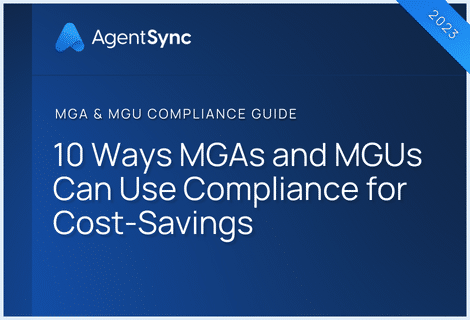

We’re taking a look at one of the most important regulatory bodies in the U.S. financial market: FINRA. From the organization’s history to its main objectives, we’ll explore every aspect of this key player in the financial regulatory space from an insurance industry perspective.
What is FINRA?
The Financial Industry Regulatory Authority, or FINRA, is a nongovernmental organization that works to ensure the integrity of the U.S. financial system. FINRA is a key player in the financial regulatory field with a wide range of disciplinary powers including the ability to take action against brokers and firms acting with ill-intent. The main goal of FINRA is to protect investors from fraud and unethical practices.
History of FINRA
FINRA formed in 2007 as a combination of the National Association of Securities Dealers, Inc (NASD) and the New York Stock Exchange (NYSE) Member Regulation. The Securities Exchange Commission (SEC) approved the organization to oversee the more than 5,000 securities firms and 666,000 registered representatives in the U.S. at the time and to take over functions previously overseen by the NASD.
At its creation, then-CEO Mary Schapiro called FINRA “the most significant modernization of the self-regulatory regime in decades.” The formation of the single organization effectively eliminates overlapping regulations and helps set a uniform standard for increasing investor protection.
What’s the difference between the SEC and FINRA?
While both FINRA and the SEC play a critical role in regulating the financial industry, the scope of each organization’s power is different. The SEC is a governmental agency that regulates the financial markets and enforces securities laws very broadly. FINRA, on the other hand, is a nongovernmental, self-regulating organization whose focus lies on the regulation of brokers and brokerage firms. FINRA is also subordinate to the SEC – put another way, the SEC has authority over FINRA but allows the organization to self-regulate.
If you’re still confused at the differences between the SEC and FINRA just remember that the SEC has a wider scope of regulation, while FINRA is more limited. FINRA deals with the “human” (aka brokers) aspect of regulation while the SEC more broadly regulates the securities industry and financial market as a whole.
What does FINRA do?
The main objective of FINRA is writing and enforcing rules to govern the activities of all registered brokers and broker-dealer firms in the U.S. FINRA staff routinely examines these individuals and organizations for compliance to help protect the interests of the investing public.
To trade securities with investors, brokers must register with FINRA by completing series examinations. Once registered, brokers will need to complete ongoing education requirements to continue selling or offering advisory services for securities. If a broker violates regulatory requirements, FINRA can bring disciplinary actions against the individual or firm.
Do insurance producers need to register with FINRA?
In short, yes. If you are an insurance producer who wants to sell and advise consumers on securities products, you need to register with FINRA. Obtaining FINRA registration is similar to obtaining a license to sell insurance products. Any broker who wishes to sell securities products like variable and registered index-linked annuities will need to obtain a valid life insurance license first. However, because securities are more heavily regulated than other insurance products, brokers will also need to register with FINRA and complete a series of exams before they are legally ready to sell.
TL;DR: If you are an insurance producer looking to sell securities (like variable annuities) you need to register with FINRA.
Does FINRA provide services outside of its regulatory role?
While overseeing broker compliance is top of the list for FINRA, the organization does offer services outside of its regulatory role. For example, FINRA maintains a library of information and educational resources for investors to help them employ best practices and better protect themselves from fraud. The organization also fields customer complaints about FINRA member brokers and firms and provides dispute resolution services to investors and brokers whose complaints reach legal action.
All the while, FINRA staff members also monitor daily market transactions to ensure market integrity. The organization uses AI technology to scan for patterns or signs of unethical behavior. If the technology detects fraud, FINRA staff flags it and escalates it to the appropriate authority to handle.
How does FINRA take disciplinary action?
FINRA has the power to bring disciplinary actions against any member broker or firm for unethical behavior. Disciplinary action is typically achieved with a spanking…just kidding! But, actions including fines, restitution, suspensions, and in serious cases, expulsion from the brokerage industry can leave quite the sting. In 2022, FINRA took a total of 463 disciplinary actions resulting in approximately $45 million in fines and $21 million in restitution.
To further illustrate the disciplinary process, we’ll use a recent example that occurred in our company’s home state of Colorado. The story goes like this: NatAlliance Securities, LLC was flagged after failing to supervise its traders’ bond marks to ensure accurate books. The failure to maintain accurate records led to inaccuracies in the value of its trader’s portfolio which carried over to errors in its net capital reports. Jason Adams, the trader’s direct supervisor, was responsible for reviewing the trader’s marks. After identifying discrepancies between the trader’s marks and market prices, Adams asked the trader to fix the issues, but didn’t follow up to verify whether they updated them.
As a result of the incident, NatAlliance was fined $40,000 and required to implement a new supervisory system and Adams was fined $5,000 and suspended from working with any FINRA member firm for two months. He was also required to complete 20 hours of CE for supervisory responsibilities.
Additionally, in certain circumstances where a firm or broker has done something egregious, FINRA may turn the case over to the SEC or other federal authorities to pursue criminal actions.
Avoid disciplinary action with an automated compliance solution
FINRA is just one of the many regulatory bodies that oversees the U.S. financial system. Keeping up with the regulations and licensing requirements in the broader financial and securities market can be a challenge, especially when you are also managing state specific insurance compliance requirements, but it’s necessary to avoid costly sanctions and penalties like those outlined in the scenario above.
See how AgentSync helps producers, carriers, and agencies working in the life insurance and variable annuity lines sector gain more visibility into their producer licensing and compliance. Schedule a demo today!

